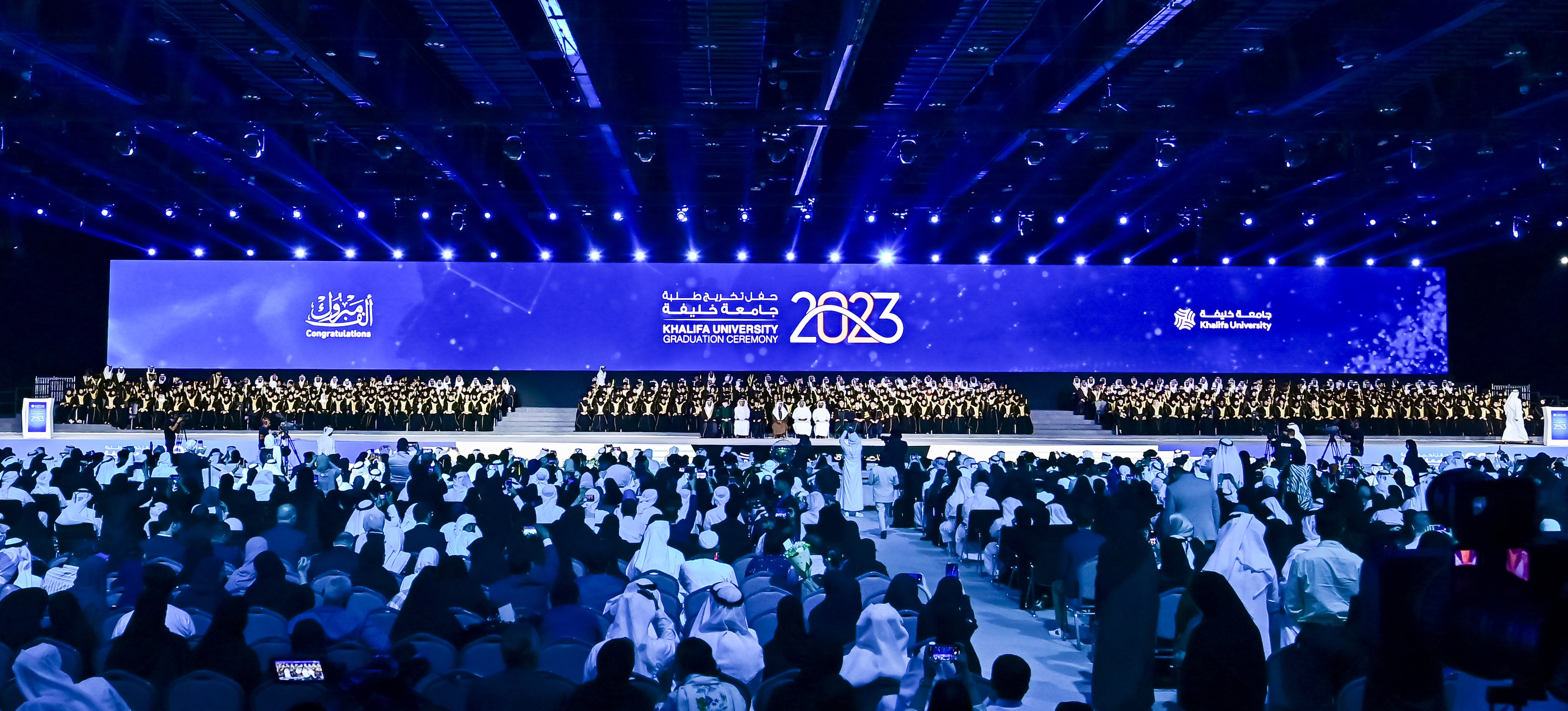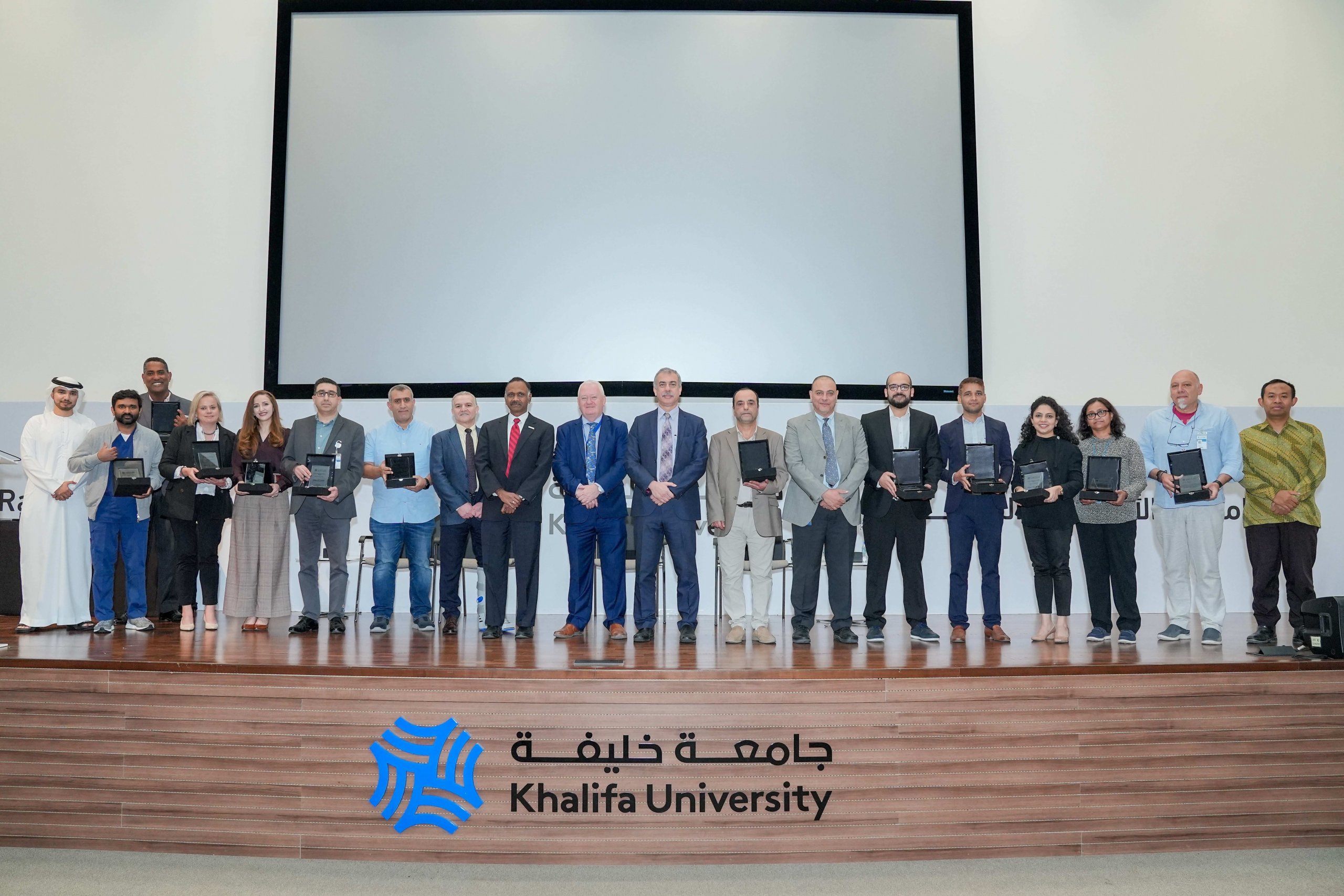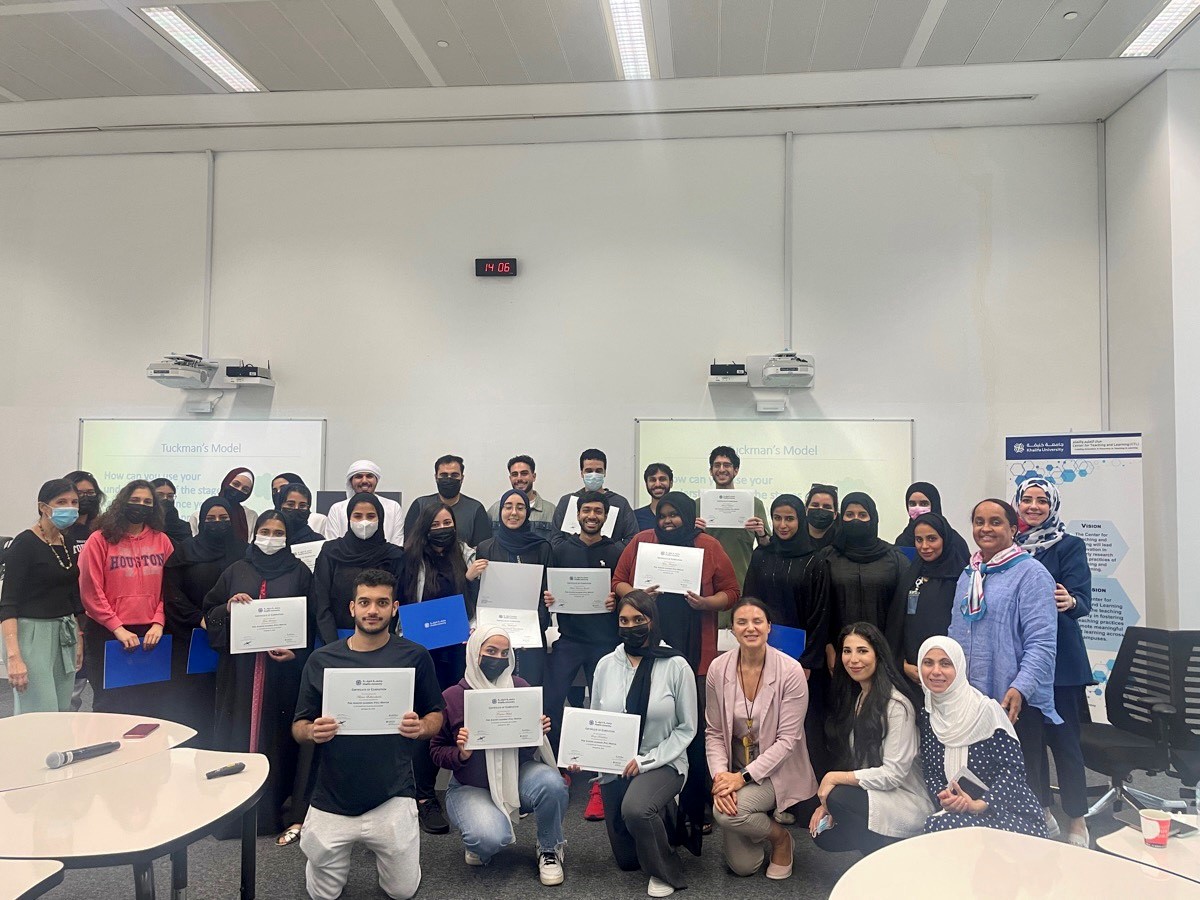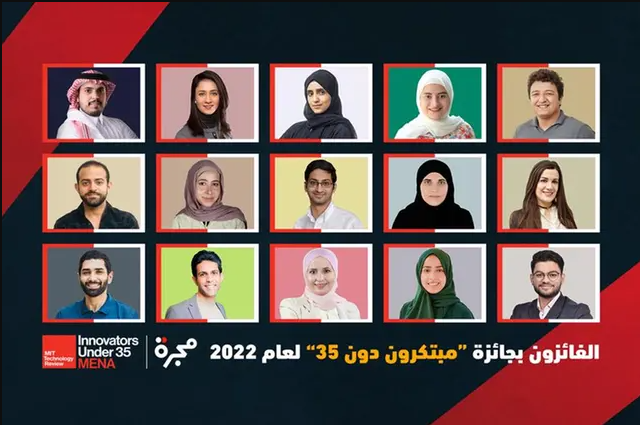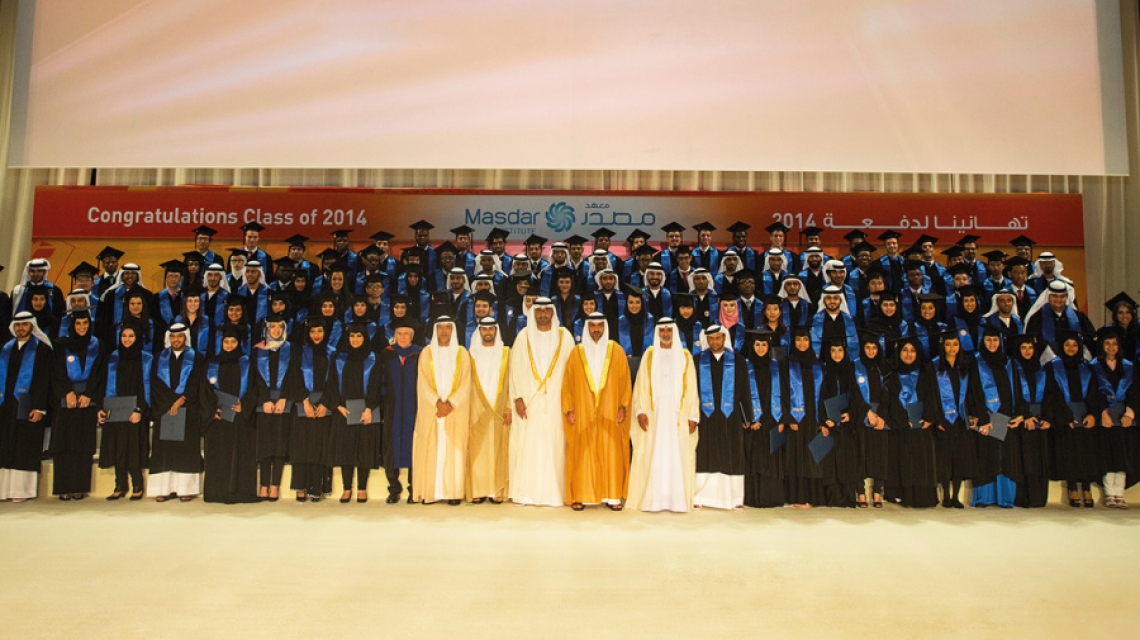
ABU DHABI: 04 June, 2014 – Under the patronage of His Highness General Sheikh Mohamed bin Zayed Al Nahyan, Crown Prince of Abu Dhabi and Deputy Supreme Commander of the UAE Armed Forces and Chairman of the Board of Trustees of Masdar Institute, His Highness Sheikh Hamed bin Zayed Al Nahyan, Chairman of Abu Dhabi Crown Prince’s Court, and His Excellency Sheikh Nahyan bin Mubarak Al Nahyan, Minister of Culture, Youth and Community Development, today attended the fourth graduation ceremony of the Masdar Institute, which was held at the Emirates Palace Hotel, Abu Dhabi.
His Highness Sheikh Hamed said that the graduation of Class 2014 students from the Masdar Institute reaffirms the commitment of the UAE to develop qualified specialists in advanced energy and sustainable technologies, as well as a new generation of research scientists and experts with cutting-edge science and technology. These efforts are inspired by the directives of the Founding Father of the UAE, Late Sheikh Zayed bin Sultan Al Nahyan, who strongly urged that the country’s environment and natural resources be preserved.
His Highness Sheikh Hamed added that the UAE leadership is always working for the good of the country’s most precious resource – its people – as recommended by His Highness Sheikh Khalifa bin Zayed Al Nahyan, UAE President and Supreme Commander of the UAE Armed Forces. He thanked His Highness Sheikh Mohamed bin Zayed Al Nahyan, Crown Prince of Abu Dhabi and Deputy Supreme Commander of the UAE Armed Forces, for his tireless efforts to support science, engineering and technology education for the good of the UAE and its citizens.
In his keynote speech, His Excellency Sheikh Nahyan said: “Masdar Institute has achieved success within such a short period while contributing largely to creating and developing qualified human capital specialized in sustainable and renewable energy. We are pleased to congratulate the fourth group of students who are graduating today and thank the UAE leadership for its continuous support that enables the youth to contribute to the progress of the country.”
“The progress of Masdar City in general and the achievements of Masdar Institute in particular are admirable. The Ministry of Culture, Youth and Community Development is currently working on a new strategy to enhance its growing contribution to ensure the community’s growth remains sustainable.”
Dr. Sultan Ahmed Al Jaber, Chairman of Masdar and Chairman of the Executive Committee of the Board of Trustees of Masdar Institute, said: “The Masdar Institute of Science and Technology is playing an increasingly critical role in supporting the clean energy industry with technological breakthroughs and world class thinkers.
“The development of our human capital and the establishment of an entrepreneurial, R&D environment in Abu Dhabi underpins our leadership’s vision of diversifying our economy. I would like to congratulate the graduating class and wish them a successful future as they embark on their careers during this exciting phase of energy diversification and economic development.”
Dr. Fred Moavenzadeh, President, Masdar Institute, said: “With this commencement ceremony, you join a select group of people around the world who have been trained with the very purpose of providing the innovations the world needs. The support and guidance of the country’s leadership continues to strengthen us as we progress towards not only becoming one of the leading research-oriented institutions in the world but also playing a key role in knowledge creation. Congratulations to the new graduates, I urge you to use the skills and knowledge you have gained at Masdar Institute wisely, and effectively.”
His Highness Sheikh Hamed and His Excellency Sheikh Nahyan awarded graduation certificates to the 130 Masdar Institute graduates of eight Master of Science programs, including Engineering Systems and Management, Computing and Information Science, Materials Science and Engineering, Mechanical Engineering, Water and Environmental Engineering, Microsystems Engineering, Electrical Power Engineering and Chemical Engineering. Of the total number of students, 53 UAE nationals representing 40% and 77 international students from 29 countries are graduating today. This increase in the number of UAE national graduates is an achievement in itself given Masdar Institute’s rigorous and highly competitive admission standards.
Masdar Institute has already earned the distinction of obtaining three approved patents so far with an additional 39 patent applications pending and over 60 invention disclosures. These achievements are in addition to over 400 papers published in peer-reviewed journals, as well as 280 conference proceedings, 19 book chapters, and two full books.
Masdar Institute held its first graduation in June 2011 while the second group of students received their Master’s degrees in May 2012. A total of 90 students received their degrees in 2013. This year, a total of 130 students are graduating after successfully completing their research and academic programs in clean energy and advanced technology subjects.
ACHIEVEMENTS:
The 2013-2014 academic year was marked by several notable achievements. Masdar Institute became one of the few academic institutions worldwide providing cutting-edge semiconductor designs for manufacturing — what is known in the industry as a ‘tape-out.’ The ‘tape-out’ produced on ‘GLOBALFOUNDRIES 28nm SLP low-power, bulk CMOS technology’, was made possible through the design-enablement and fabrication collaboration with GLOBALFOUNDRIES, the world’s second largest semiconductor foundry company, wholly-owned by Mubadala Technology.
In Computing and Information Science, a project presented by Masdar Institute’s Social Computing and Artificial Intelligence Lab became one of the 10 finalists out of 652 entries submitted for the Telecom Italia Big Data and Trentino Open Data Challenge 2014. Another important achievement in the 2013-2014 academic year was the Institute Center for Innovation and Entrepreneurship (iInnovation) Open House event, where a new two-year, fully-funded merit-based BP Innovation Scholarship was launched. The scholarships are funded in part under the new US$7 million collaborative innovation agreement that Masdar Institute and BP, signed earlier this year.
Also, in collaboration with BP Exploration Operating Company Limited and the Massachusetts Institute of Technology (MIT), Masdar Institute hosted the UAE Forum on Innovation and Entrepreneurship 2014, as a sequel to the 2013 forum. As recommended by experts, the event explored opportunities to accelerate innovation in three sectors – higher education, energy, and aerospace.
The Institute Center for Microsystems (iMicro) organized its own Open House to showcase the world-class research currently being conducted at Masdar Institute in all areas of micro- and nano-technologies, including semiconductors, photonics, microelectromechanical systems (MEMS), and photovoltaics. The Institute Center for Smart and Sustainable Systems (iSmart) hosted a symposium on sustainable critical infrastructure, during which a Master’s degree program in Sustainable Critical Infrastructure was launched. The Institute Center for Water (iWater) gathered several industry and academic experts to host a major international conference in Abu Dhabi, while the Institute Center for Energy (iEnergy) continued its research on sustainability production, energy transmission and distribution, energy storage (typically solar), energy-efficiency and bio-materials.
Students’ Projects:
Jassem Al Hammadi: Jassem’s research contributes to optimizing port operations especially bulk ports which do not receive significant attention compared to container terminals. The model he has developed optimizes the berth allocation of vessels along the quay and yard assignment for cargo storage. A case study of Zayed Port in Abu Dhabi is conducted and Jassem has developed a solution algorithm to get a near-optimal solution in a very efficient computational time.
Jassem says “I plan to work in urban planning that includes transportation, logistics, infrastructure, and city planning. I am also looking to run my own consultancy business sometime in the future. Masdar Institute has inspired me to live differently, and be a great example and inspiration to many people out there, especially in spreading awareness about sustainability.”
Azza Al Raisi: Working with phase-change materials, Azza’s thesis focused on developing a combination of paraffin wax encapsulated using networked cellulose with the best mechanical and thermal properties. The material will then be studied for the application on desalination cooling systems and other cooling systems that are needed in the UAE.
Azza says “Masdar Institute has taught me how to plan for the future. My plans are to go out, explore the developments and understand Abu Dhabi’s plans in the environmental sector, to discover where exactly I would fit. I will then continue my PhD in a specified field that I am interested in which will contribute to the UAE’s development directly as well.”
Iman Ustadi: Iman’s thesis studied the effect of the implementation of CO2 capture on the natural gas combined cycle (NGCC) power plant in the UAE. The analysis included direct technical effect on the power plant’s efficiency, availability, gross electricity output and operational conditions. The evaluation was extended to study the natural gas market in the UAE and compare it with international markets such as Scotland. The study is expected to benefit power plants in the UAE.
Iman says “At Masdar Institute, I learnt that opportunities do not come by luck but by hard work and great contribution, and passion with commitment. My intention is to be enrolled in a career where I can apply all the knowledge I gained during my undergraduate years, in addition to what I have gained in my Master’s. I am so much interested to get in-depth with the technical path and improve myself.”
Yamrot Amha: Yamrot Amha’s research aims to contribute to making Abu Dhabi’s recycled water safer by testing to find out what residual pathogens it contains. Currently, only 60% of the treated wastewater is being used for landscape irrigation and wetlands, while the remaining amount is discharged to the sea. The use of treated wastewater in irrigation of edible crops in the UAE presents an opportunity to enhance food security while overcoming water scarcity.
Yamrot says “At Masdar Institute, I learned the importance of practicing sustainability in daily lives, such as use of low carbon technologies. For future, I want to become an entrepreneur in my home country Ethiopia, with a mission to find energy solutions at different scales. I would like to contribute to the sustainable development of my country, and join the efforts in bringing energy to 77% of the population that currently do not have access to electricity.”
Majed Al Marzouqi: Majed’s thesis contributes to the development of efficient and cost effective carbon capture technologies that can be used to reduce CO2 emissions from power plant, fuel production and fuel formulation facilities using light and heavy hydrocarbon as feedstock. The development of an efficient carbon capture technology is very relevant to Abu Dhabi, which has one of the world’s highest per capita energy usages and correspondingly very high carbon foot-print.
Majed says “I am looking to implement the sustainable technologies I learnt from Masdar Institute in Abu Dhabi Sewerage Services Company (ADSSC), where I worked for two years earlier. I am also looking forward to taking up my PhD studies and use my knowledge for teaching students in a local university.”
Mejd Alsari: Mejd’s research focused on making a type of photovoltaic technology more optimized using nanoscale investigation. In her research, the fabrication of the first polymer-based organic photovoltaic solar cell (OPV) in the UAE was achieved using Masdar Institute’s cleanroom facilities internally without any assistance from external fabrication facilities or expertise.
Mejd says “Through scientific research, I plan to use the skills that I have learnt to help with the technological development of the UAE in renewable energy. My focus will be more specifically in photovoltaics and I would like to be part of the scientific community by becoming a research scientist or a professor.”
Khaled Al Nuaimi: Khaled’s research is the first project funded by SRC/ATIC to use the Masdar Institute clean-room and fabricate nano-devices to be used in the semiconductor industry over the next decade. This project has technical collaboration with MIT and uses various tools in Masdar Institute cleanroom and the microscopy facility. Khaled visited the MIT cleanroom to learn the technology and brought the knowledge to Masdar Institute. His project involves fabrication, simulation and rare microscopy images on atomic scale interaction.
Khaled says “I chose Masdar Institute as the place for my Master’s study because it has the only cleanroom in the GCC region. With my research project, we are trying to find more energy-efficient materials for semiconductor fabrication – a new field in the UAE. It is also a new area of investment for the UAE, which makes this type of research really important for the country and the region.”
Ameirah Aldahmani is working today to make sure that tomorrow’s green ‘ecopreneurial’ startups have all the opportunities they need to succeed. As an Engineering Systems and Management student, she investigates what influences the success and failure of the high-tech industries that are to play a key role in the UAE’s knowledge economy. Her work is being done at iInnovation, one of Masdar Institute’s five new specialized research centers.
Ameirah says: “Living in a green community on-campus has influenced me to have a sustainable lifestyle and taught me that small changes such as recycling and saving water can have a big impact. Masdar Institute has also given me knowledge in energy poverty and sustainable development, while my real-world experience in remote communities has allowed me to live and learn the culture and life of the poor.”
Mohammad Al Musharekh’s research project at Masdar Institute focuses on exploring cutting-edge ways to transform waste especially cooking oil and municipal waste as an alternative energy source while reducing negative environmental impact. The work is done at iEnergy, one of Masdar Institute’s five new specialized research centers.
Mohammad says: “I learnt the importance of waste sorting, efficient air-conditioning, use sensors for lighting and effective use of water. Winning second place in the Akoun Business Idea Competition 2013 for my ‘Beauty touch 3D paint center’ project has emboldened me and now I am in the process of starting up his own business, focusing on sustainability.”
Latifa A Yousef is developing a new way to predict how much rain a structure – be it a road, dam, building, or sewer – will be subjected to in its lifetime. The data her model provides can be used to design infrastructures that can handle extreme rainfall events, which are becoming more severe due to global climate change. This work is being done at iWater, one of Masdar Institute’s five new specialized research centers.
Latifa says: “I have presented my research at the Hydrology session of the American Geophysical Union’s (AGU) Fall Meeting in 2013. For the future, I plan to conduct research in hydrological modeling and I am keen to be involved with any research institution/group or organization that is focusing on further developments in this field. The UAE’s National Center of Meteorology and Seismology (NCMS) has also expressed significant interest in my work.”
Alberto Gomez is exploring how he could take advantage of the electricity generated by renewable energy to produce hydrogen by electrolyzing the water that could be used to power a fuel cell, thus closing the cycle of clean energy with no carbon emissions. He believes a fuel cell plant could serve as a clean backup system for Masdar Institute, a renewable energy-focused institution, during unforeseen circumstances.
Alberto says: “Equipped with the knowledge provided by Masdar Institute, I would like to become a professional in the strategy consulting business and continue helping companies solve their energy challenges. Living in UAE but spending most of my time at the Masdar Institute campus made me realize the need for sustainable awareness in today’s society. That was why I was happy to have contributed to raising awareness about Masdar Institute’s academic and research offerings among the university graduates in Barcelona and Madrid in Spain.”
Farah Ahmed: Treatment of oily wastewater generated through industrial activities is an issue of growing importance. Farah has successfully developed and tested membranes that can filter and separate fresh water from different oil waste.
Farah says: “Masdar Institute’s emphasis on sustainability has helped me realize how excessive my previous lifestyle was. Turning off water and using less lights make up my newly acquired ‘sustainable’ habits. I plan to undertake a doctoral program in Materials Science and Engineering to boost my expertise in the areas of clean water technologies and sustainable development. More importantly, I hope to engage in research and academics for sharing my knowledge with other motivated learners.”



